Presented by:
Richard Prum, Ruth Kastner, Shantena Sabbadini, Efrat Ginot,
Richard Tarnas & Michael Conforti
This lecture series forms part of The Assisi Institute Roots of the Matter Public Lecture Program.
Tuition: $150
Dates & Times:
All lectures take place live via Zoom over five consecutive Thursdays:
April 14th, 21st, 28th and May 5th, 12th, 2022
8:00pm to 9:30 pm US Eastern Time
If you are not able to join the live sessions, please note that the lectures will be recorded and all registered
participants will receive the recordings afterwards.
Richard Prum, Ruth Kastner, Shantena Sabbadini, Efrat Ginot,
Richard Tarnas & Michael Conforti
This lecture series forms part of The Assisi Institute Roots of the Matter Public Lecture Program.
Tuition: $150
Dates & Times:
All lectures take place live via Zoom over five consecutive Thursdays:
April 14th, 21st, 28th and May 5th, 12th, 2022
8:00pm to 9:30 pm US Eastern Time
If you are not able to join the live sessions, please note that the lectures will be recorded and all registered
participants will receive the recordings afterwards.
“Matter is spirit moving slowly enough to be seen.”
Pierre Teilhard De Chardin
Pierre Teilhard De Chardin
Throughout his life, C.G. Jung maintained an unwavering interest and fascination in the confluence of matter and spirit. From his alchemical studies, to the realm of the Psychoid, each speaks to the inexorable relationship between Psyche and Matter and Matter and Soul.
Towards the end of his life, he commented that if he were still a young man, he would gather together a group of Physicists to study the work of archetypes and the emergence of dynamics from the realm of the psychoid, and then have a group of analysts who would take the time to study the guiding principles in Physics.
In this way each would know something of the other’s work, and perhaps together could arrive at an even richer understanding of the presence and workings of the Psyche in the material world.
Based on Jung’s insight, The Assisi Institute’s vision has always followed an interdisciplinary discussion into the nature of the archetypes, the emergence of form and patterns, and the evolution of the psyche, from the individual to the Unus Mundus.
Please join us in this 5-part series where some of the most recognized pioneers in evolutional biology, neuropsychology, quantum physics, and cosmology share with us their understandings of how the forms and patterns of the archetypes show up in nature and the Psyches of all living organisms.
Towards the end of his life, he commented that if he were still a young man, he would gather together a group of Physicists to study the work of archetypes and the emergence of dynamics from the realm of the psychoid, and then have a group of analysts who would take the time to study the guiding principles in Physics.
In this way each would know something of the other’s work, and perhaps together could arrive at an even richer understanding of the presence and workings of the Psyche in the material world.
Based on Jung’s insight, The Assisi Institute’s vision has always followed an interdisciplinary discussion into the nature of the archetypes, the emergence of form and patterns, and the evolution of the psyche, from the individual to the Unus Mundus.
Please join us in this 5-part series where some of the most recognized pioneers in evolutional biology, neuropsychology, quantum physics, and cosmology share with us their understandings of how the forms and patterns of the archetypes show up in nature and the Psyches of all living organisms.
The Lectures
Thursday, April 14, 2022 8:00 pm - 9:30 pm US Eastern Time
Aesthetic Evolution: Animal Subjectivity, Diversity, and the Nature of Art
Presented by Richard O. Prum
Darwin's theory of sexual selection by mate choice proposed that many organisms choose their mates based on their subjective desires. He further proposed that secondary sexual ornaments – like bird songs, displays, and colorful plumages – co-evolve with the corresponding preferences for them.
In work spanning ornithology, evolutionary biology, and aesthetic philosophy, Richard Prum proposes that Darwin's insights provide the broad intellectual tools necessary to understand the nature of aesthetics generally. In biology, sexual selection by mate choice introduces the agency of organismal subjectivity - literally what individual organisms like or don't like – into the process of evolution which is otherwise occurs by random (i.e. mutation, genetic drift) or objective (i.e. natural selection) processes.
The aesthetic co evolution of display and preference – desire and the object of desire – create a class of phenomena that cannot be described as adaptations. Recognizing the aesthetic agency of mate choice provides additional insights into the evolutionary consequences of sexual violence, documenting that sexual autonomy is an evolved feature of many animal social systems. Lastly, by defining art as a form of communication that co-evolves with its evaluation, this authentically Darwinian account establishes a co-evolutionary aesthetic philosophy that provides rich new intellectual tools for understanding the breadth and diversity of the human and non-human arts.
Thursday, April 21, 2022 8:00 pm - 9:30 pm US Eastern Time
Quantum Theory: The Reality of Possibility
Presented by Ruth Kastner
There is a need for a paradigm change in the way we think about the world of space, time, and action in the Western tradition. One limiting notion is the idea that anything real must be tangible by the external five senses. Another is the assumption that real objects are separate, localized “things” that move from place to place in a container called “spacetime.” Yet another is the notion that dynamical action, energy, is emitted by one entity that does all the work and ends up at another point as a passive, secondary effect. This can be understood as a “Yang-only” view.
Yang-type processes are generation, initiation, and creation. In contrast, Yin-type processes include reception, response, and dissolution; they are every bit as important, but have been largely unseen by Western science. One consequence is that physics has long overlooked a Yin-based approach to field interaction that could shed new light on the significance of quantum theory for our understanding of reality. The paradigm change required by quantum theory includes the recognition that potentiality, or possibility, is just as real as actuality. Thus, quantum theory opens the door to an understanding that the phenomenal level of our experience rests upon a vast ocean of possibility from which creativity emerges.
Suggested reading materials:
Kastner, R. E. (2015). Understanding Our Unseen Reality: Solving Quantum Riddles (World Scientific)
Kastner, R. E. (2019). Adventures in Quantumland: Exploring Our Unseen Reality (World Scientific)
Thursday, April 28, 2022 8:00 pm - 9:30 pm US Eastern Time
The Enigma of Time in Physics, Philosophy and the Psyche
Presented by Shantena Sabbadini
Time is the ultimate enigma for contemporary physics. In the formalism of quantum physics, it is treated differently from all other variables. In the fundamental equations of physics there is no arrow of time, time can flow forward or backward in a perfectly symmetric way.
Yet in the Second Law of thermodynamics and in our lived experience it very definitely flows in one direction and not in the opposite one. We remember the past and not the future. We grow older and not younger. A cup of tea left on the counter cools down by warming the surrounding air, but we never see the surrounding air warming up a cold cup of tea. Does the key to the enigma reside in the Big Bang? Does it imply multiple universes?
Thursday, May 5, 2022 8:00 pm - 9:30 pm US Eastern Time
Our Anxious Selves: The Broad and Enduring Influences of the Fear System
Presented by Efrat Ginot
This talk explores the outsized role that the fear system plays in forming fundamental aspects of who we are. It examines how inevitable and commonplace adverse experiences during our development create predictable emotional effects that shape our unconscious and conscious patterns; how we tend to think, feel, and act. After years of practice, this topic reflects Efrat Ginot’s realization that most of our internal and interpersonal difficulties and struggles are the result of the powerful and ever-present fear system.
We are all unique in our individuality and greatly differ in the ways we see ourselves, in how we feel about others, and in how we cope with the inevitable emotional injuries and painful turmoil that are part of life. Most of us, however, share the emotional consequences of innate fear and anxiety - facets of the fear system - that are inevitably part of development. The effects of the strong presence of fear and anxiety in our psychic life are not confined only to how we consciously experience the scary, dysregulating emotions of fear and anxiety. Rather, throughout development these emotions influence other feelings and most of our mental functions. Patterns of attention, expectations, thought processes and our typical narratives about ourselves and others are greatly affected by the early presence of the fear system. This is the result of the brain-wide integration among regions and neural circuits.
Specifically, from the very beginning, the vigilant amygdala and its related circuits are interconnected with all other brain regions, thus negatively influencing many aspects of our conscious and unconscious patterns. The tendency to experience oneself and the world with excessive insecurities, worries, self-hating negative ruminations and avoidant behaviors are only a few examples.
This talk further explores in detail the many aspects of the fear system and their enduring influence on how we develop and who we become.
Thursday, May 12, 2022 8:00 pm - 9:30 pm US Eastern Time
Archetypal Influences: Form and Potentia in the Individual and Collective Psyche
Presented by Richard Tarnas & Michael Conforti
This presentation offers an investigation into the nature and form of archetypal dynamics.
The activation of an archetype within the Psyche creates a constellation within the Psychic system. Here the archetype exists as a sense of readiness, of moving from potential to form within the individual and collective Psyche. From the perspectives of Archetypal Astrology and Jungian Analytic practice by two of the pioneers in the field of archetypal patterning, Richard Tarnas and Michael Conforti will discuss the influence, mobilization, and conversion of archetypal potentiality into form.
Thursday, April 14, 2022 8:00 pm - 9:30 pm US Eastern Time
Aesthetic Evolution: Animal Subjectivity, Diversity, and the Nature of Art
Presented by Richard O. Prum
Darwin's theory of sexual selection by mate choice proposed that many organisms choose their mates based on their subjective desires. He further proposed that secondary sexual ornaments – like bird songs, displays, and colorful plumages – co-evolve with the corresponding preferences for them.
In work spanning ornithology, evolutionary biology, and aesthetic philosophy, Richard Prum proposes that Darwin's insights provide the broad intellectual tools necessary to understand the nature of aesthetics generally. In biology, sexual selection by mate choice introduces the agency of organismal subjectivity - literally what individual organisms like or don't like – into the process of evolution which is otherwise occurs by random (i.e. mutation, genetic drift) or objective (i.e. natural selection) processes.
The aesthetic co evolution of display and preference – desire and the object of desire – create a class of phenomena that cannot be described as adaptations. Recognizing the aesthetic agency of mate choice provides additional insights into the evolutionary consequences of sexual violence, documenting that sexual autonomy is an evolved feature of many animal social systems. Lastly, by defining art as a form of communication that co-evolves with its evaluation, this authentically Darwinian account establishes a co-evolutionary aesthetic philosophy that provides rich new intellectual tools for understanding the breadth and diversity of the human and non-human arts.
Thursday, April 21, 2022 8:00 pm - 9:30 pm US Eastern Time
Quantum Theory: The Reality of Possibility
Presented by Ruth Kastner
There is a need for a paradigm change in the way we think about the world of space, time, and action in the Western tradition. One limiting notion is the idea that anything real must be tangible by the external five senses. Another is the assumption that real objects are separate, localized “things” that move from place to place in a container called “spacetime.” Yet another is the notion that dynamical action, energy, is emitted by one entity that does all the work and ends up at another point as a passive, secondary effect. This can be understood as a “Yang-only” view.
Yang-type processes are generation, initiation, and creation. In contrast, Yin-type processes include reception, response, and dissolution; they are every bit as important, but have been largely unseen by Western science. One consequence is that physics has long overlooked a Yin-based approach to field interaction that could shed new light on the significance of quantum theory for our understanding of reality. The paradigm change required by quantum theory includes the recognition that potentiality, or possibility, is just as real as actuality. Thus, quantum theory opens the door to an understanding that the phenomenal level of our experience rests upon a vast ocean of possibility from which creativity emerges.
Suggested reading materials:
Kastner, R. E. (2015). Understanding Our Unseen Reality: Solving Quantum Riddles (World Scientific)
Kastner, R. E. (2019). Adventures in Quantumland: Exploring Our Unseen Reality (World Scientific)
Thursday, April 28, 2022 8:00 pm - 9:30 pm US Eastern Time
The Enigma of Time in Physics, Philosophy and the Psyche
Presented by Shantena Sabbadini
Time is the ultimate enigma for contemporary physics. In the formalism of quantum physics, it is treated differently from all other variables. In the fundamental equations of physics there is no arrow of time, time can flow forward or backward in a perfectly symmetric way.
Yet in the Second Law of thermodynamics and in our lived experience it very definitely flows in one direction and not in the opposite one. We remember the past and not the future. We grow older and not younger. A cup of tea left on the counter cools down by warming the surrounding air, but we never see the surrounding air warming up a cold cup of tea. Does the key to the enigma reside in the Big Bang? Does it imply multiple universes?
Thursday, May 5, 2022 8:00 pm - 9:30 pm US Eastern Time
Our Anxious Selves: The Broad and Enduring Influences of the Fear System
Presented by Efrat Ginot
This talk explores the outsized role that the fear system plays in forming fundamental aspects of who we are. It examines how inevitable and commonplace adverse experiences during our development create predictable emotional effects that shape our unconscious and conscious patterns; how we tend to think, feel, and act. After years of practice, this topic reflects Efrat Ginot’s realization that most of our internal and interpersonal difficulties and struggles are the result of the powerful and ever-present fear system.
We are all unique in our individuality and greatly differ in the ways we see ourselves, in how we feel about others, and in how we cope with the inevitable emotional injuries and painful turmoil that are part of life. Most of us, however, share the emotional consequences of innate fear and anxiety - facets of the fear system - that are inevitably part of development. The effects of the strong presence of fear and anxiety in our psychic life are not confined only to how we consciously experience the scary, dysregulating emotions of fear and anxiety. Rather, throughout development these emotions influence other feelings and most of our mental functions. Patterns of attention, expectations, thought processes and our typical narratives about ourselves and others are greatly affected by the early presence of the fear system. This is the result of the brain-wide integration among regions and neural circuits.
Specifically, from the very beginning, the vigilant amygdala and its related circuits are interconnected with all other brain regions, thus negatively influencing many aspects of our conscious and unconscious patterns. The tendency to experience oneself and the world with excessive insecurities, worries, self-hating negative ruminations and avoidant behaviors are only a few examples.
This talk further explores in detail the many aspects of the fear system and their enduring influence on how we develop and who we become.
Thursday, May 12, 2022 8:00 pm - 9:30 pm US Eastern Time
Archetypal Influences: Form and Potentia in the Individual and Collective Psyche
Presented by Richard Tarnas & Michael Conforti
This presentation offers an investigation into the nature and form of archetypal dynamics.
The activation of an archetype within the Psyche creates a constellation within the Psychic system. Here the archetype exists as a sense of readiness, of moving from potential to form within the individual and collective Psyche. From the perspectives of Archetypal Astrology and Jungian Analytic practice by two of the pioneers in the field of archetypal patterning, Richard Tarnas and Michael Conforti will discuss the influence, mobilization, and conversion of archetypal potentiality into form.
About the Presenters:
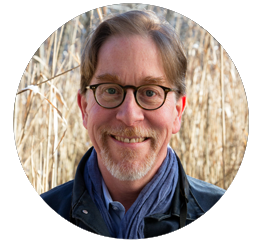
Richard Prum
Richard Prum, PhD. is an evolutionary ornithologist with broad interests in avian biology. He has done research on diverse topics, including avian phylogenetics, behavioral evolution, feather evolution, sexual selection, structural color, the theropod dinosaur origin of birds, and more. He has conducted field work on all continents, and studied fossil theropods in China.
Prum is the William Robertson Coe Professor of Ornithology in the Department of Ecology and Evolutionary Biology at Yale University. He also serves as the Curator of Ornithology in the Yale Peabody Museum of Natural History. From 2012-2017, Prum was the inaugural Director of Franke Program in Science and the Humanities – an initiative at Yale that aims to foster communication, mutual understanding, collaborative research and teaching among diverse scientific and humanistic disciplines.
Prum earned his bachelors at Harvard University and his doctorate at the University of Michigan, and he has been awarded the Fulbright, Guggenheim, and MacArthur Fellowships. Prum's 2017 book, The Evolution of Beauty, was named one of the New York Times' Top Ten Books of 2017, and was a finalist for the 2018 Pulitzer Prize in General Non-Fiction. The book has been translated into ten languages.
Richard Prum, PhD. is an evolutionary ornithologist with broad interests in avian biology. He has done research on diverse topics, including avian phylogenetics, behavioral evolution, feather evolution, sexual selection, structural color, the theropod dinosaur origin of birds, and more. He has conducted field work on all continents, and studied fossil theropods in China.
Prum is the William Robertson Coe Professor of Ornithology in the Department of Ecology and Evolutionary Biology at Yale University. He also serves as the Curator of Ornithology in the Yale Peabody Museum of Natural History. From 2012-2017, Prum was the inaugural Director of Franke Program in Science and the Humanities – an initiative at Yale that aims to foster communication, mutual understanding, collaborative research and teaching among diverse scientific and humanistic disciplines.
Prum earned his bachelors at Harvard University and his doctorate at the University of Michigan, and he has been awarded the Fulbright, Guggenheim, and MacArthur Fellowships. Prum's 2017 book, The Evolution of Beauty, was named one of the New York Times' Top Ten Books of 2017, and was a finalist for the 2018 Pulitzer Prize in General Non-Fiction. The book has been translated into ten languages.
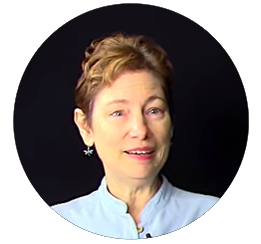
Ruth Kastner
Ruth E. Kastner earned her M.S. in Physics and Ph.D. in History and Philosophy of Science from the University of Maryland. Since that time, she has taught widely and conducted research in Foundations of Physics, particularly in interpretations of quantum theory. She is the author of three books: The Transactional Interpretation of Quantum Theory: The Reality of Possibility (Cambridge University Press, 2012; 2nd edition forthcoming in July 2022), Understanding Our Unseen Reality: Solving Quantum Riddles (Imperial College Press, 2015); and Adventures In Quantumland: Exploring Our Unseen Reality (World Scientific, 2019). She has presented talks and interviews throughout the world and in video recordings on the interpretational challenges of quantum theory. She is also a certified yoga teacher in Bhakti Yoga.
Ruth E. Kastner earned her M.S. in Physics and Ph.D. in History and Philosophy of Science from the University of Maryland. Since that time, she has taught widely and conducted research in Foundations of Physics, particularly in interpretations of quantum theory. She is the author of three books: The Transactional Interpretation of Quantum Theory: The Reality of Possibility (Cambridge University Press, 2012; 2nd edition forthcoming in July 2022), Understanding Our Unseen Reality: Solving Quantum Riddles (Imperial College Press, 2015); and Adventures In Quantumland: Exploring Our Unseen Reality (World Scientific, 2019). She has presented talks and interviews throughout the world and in video recordings on the interpretational challenges of quantum theory. She is also a certified yoga teacher in Bhakti Yoga.
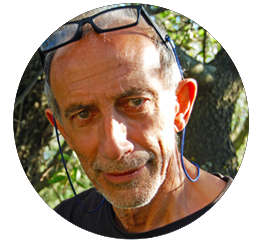
Shantena Sabbadini
Shantena Augusto Sabbadini is a physicist, philosopher and a scholar of Chinese classics. As a physicist he worked at the University of Milan on the foundations of quantum physics and at the University of California on the first identification of a black hole. In the 1990's he was scientific consultant for the Eranos Foundation, an East-West research institute founded in 1933 under the supervision of C.G. Jung. In that context he produced innovative translations of the I Ching and of the Taoist classics. He directs the Pari Center for New Learning, an international institute located in the small medieval village of Pari, Tuscany. His latest books are Pilgrimages to Emptiness (Pari Publishing, 2017), Buchi neri (Lindau, Turin, 2018) and Vacuum: The Ultimate Ground of Being, with Maurizio Consoli (World Scientific, Singapore, expected to come out in 2020).
Shantena Augusto Sabbadini is a physicist, philosopher and a scholar of Chinese classics. As a physicist he worked at the University of Milan on the foundations of quantum physics and at the University of California on the first identification of a black hole. In the 1990's he was scientific consultant for the Eranos Foundation, an East-West research institute founded in 1933 under the supervision of C.G. Jung. In that context he produced innovative translations of the I Ching and of the Taoist classics. He directs the Pari Center for New Learning, an international institute located in the small medieval village of Pari, Tuscany. His latest books are Pilgrimages to Emptiness (Pari Publishing, 2017), Buchi neri (Lindau, Turin, 2018) and Vacuum: The Ultimate Ground of Being, with Maurizio Consoli (World Scientific, Singapore, expected to come out in 2020).
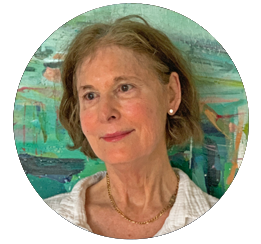
Efrat Ginot
Efrat Ginot, PhD. has been practicing psychotherapy and psychoanalysis for over 35 years in New York City. She has also taught and supervised other psychotherapists. She is a graduate of the New York University Postdoctoral Program for Psychotherapy and Psychoanalysis. Dr. Ginot published papers that focus on the therapeutic process. In particular, her large body of work integrates neuropsychology and psychoanalytic thinking, advancing our understanding of psychodynamics and psychopathology. In 2002 she received the Gradiva Award for an article re-examining the concept of the Holding Environment.
Her book published by Norton, The Neuropsychology of the unconscious: Integrating brain and mind in psychotherapy presents a new neuropsychological model for understanding unconscious processes and demonstrates how a contemporary view of the unconscious is essential for clinical work. This book also received the Gradiva Award for Best Book in 2016. Over the years she participated in many panels where she presented her ideas. She has given lectures and workshops in the U.S., Australia, Europe and Israel.
Her current book Our Anxious Selves: Neuropsychological Processes and Their Enduring Influence on Who We Are focuses on the oversized role that fear and anxiety have on who we are. This book is also published by Norton. Dr. Efrat Ginot is also an artist.
Efrat Ginot, PhD. has been practicing psychotherapy and psychoanalysis for over 35 years in New York City. She has also taught and supervised other psychotherapists. She is a graduate of the New York University Postdoctoral Program for Psychotherapy and Psychoanalysis. Dr. Ginot published papers that focus on the therapeutic process. In particular, her large body of work integrates neuropsychology and psychoanalytic thinking, advancing our understanding of psychodynamics and psychopathology. In 2002 she received the Gradiva Award for an article re-examining the concept of the Holding Environment.
Her book published by Norton, The Neuropsychology of the unconscious: Integrating brain and mind in psychotherapy presents a new neuropsychological model for understanding unconscious processes and demonstrates how a contemporary view of the unconscious is essential for clinical work. This book also received the Gradiva Award for Best Book in 2016. Over the years she participated in many panels where she presented her ideas. She has given lectures and workshops in the U.S., Australia, Europe and Israel.
Her current book Our Anxious Selves: Neuropsychological Processes and Their Enduring Influence on Who We Are focuses on the oversized role that fear and anxiety have on who we are. This book is also published by Norton. Dr. Efrat Ginot is also an artist.
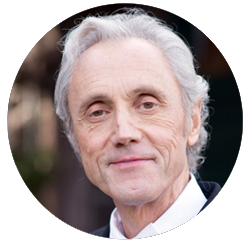
Richard Tarnas
Richard Tarnas is a professor of psychology and cultural history at the California Institute of Integral Studies in San Francisco, where he founded the graduate program in Philosophy, Cosmology, and Consciousness. He has also taught archetypal studies and depth psychology at Pacifica Graduate Institute in Santa Barbara. He is the author of The Passion of the Western Mind, which became both a best seller and a required text in many universities; and Cosmos and Psyche: Intimations of a New World View, which received the Book of the Year Prize from the Scientific and Medical Network, and is the basis for the upcoming documentary film Changing of the Gods. He is a past president of the International Transpersonal Association and served on the Board of Governors for the C.G. Jung Institute of San Francisco.
Richard Tarnas is a professor of psychology and cultural history at the California Institute of Integral Studies in San Francisco, where he founded the graduate program in Philosophy, Cosmology, and Consciousness. He has also taught archetypal studies and depth psychology at Pacifica Graduate Institute in Santa Barbara. He is the author of The Passion of the Western Mind, which became both a best seller and a required text in many universities; and Cosmos and Psyche: Intimations of a New World View, which received the Book of the Year Prize from the Scientific and Medical Network, and is the basis for the upcoming documentary film Changing of the Gods. He is a past president of the International Transpersonal Association and served on the Board of Governors for the C.G. Jung Institute of San Francisco.
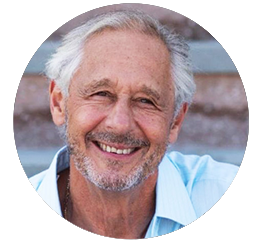
Michael Conforti
Dr. Michael Conforti is a Jungian analyst and the Founder and Director of the Assisi Institute. He is a faculty member at the C.G. Jung Institute of Boston, the C.G. Jung Institute of New York, and for many years served as a Senior Associate faculty member in the Doctoral and Master's Programs in Clinical Psychology at Antioch New England. A pioneer in the field of matter-psyche studies, Dr. Conforti is actively investigating the workings of archetypal fields and the relationship between Jungian psychology and the New Sciences.
He has presented his work to a wide range of national and international audiences, including the C.G. Jung Institute - Zurich and Jungian organizations in Australia, Canada, Colombia, Denmark, Ecuador, Italy, Russia, South Africa, the Ukraine and Venezuela.
He is the author of Threshold Experiences: The Archetype of Beginnings (2007) and Field, Form and Fate: Patterns in Mind, Nature and Psyche (2002). His articles have appeared in Psychological Perspectives, The San Francisco Jung Institute Library Journal, Roundtable Press, World Futures: The Journal of General Evolution, and Spring Journal. His books have been translated into Italian, Russian, and includes a soon to be released Spanish edition of his work.
Dr. Michael Conforti is a Jungian analyst and the Founder and Director of the Assisi Institute. He is a faculty member at the C.G. Jung Institute of Boston, the C.G. Jung Institute of New York, and for many years served as a Senior Associate faculty member in the Doctoral and Master's Programs in Clinical Psychology at Antioch New England. A pioneer in the field of matter-psyche studies, Dr. Conforti is actively investigating the workings of archetypal fields and the relationship between Jungian psychology and the New Sciences.
He has presented his work to a wide range of national and international audiences, including the C.G. Jung Institute - Zurich and Jungian organizations in Australia, Canada, Colombia, Denmark, Ecuador, Italy, Russia, South Africa, the Ukraine and Venezuela.
He is the author of Threshold Experiences: The Archetype of Beginnings (2007) and Field, Form and Fate: Patterns in Mind, Nature and Psyche (2002). His articles have appeared in Psychological Perspectives, The San Francisco Jung Institute Library Journal, Roundtable Press, World Futures: The Journal of General Evolution, and Spring Journal. His books have been translated into Italian, Russian, and includes a soon to be released Spanish edition of his work.
